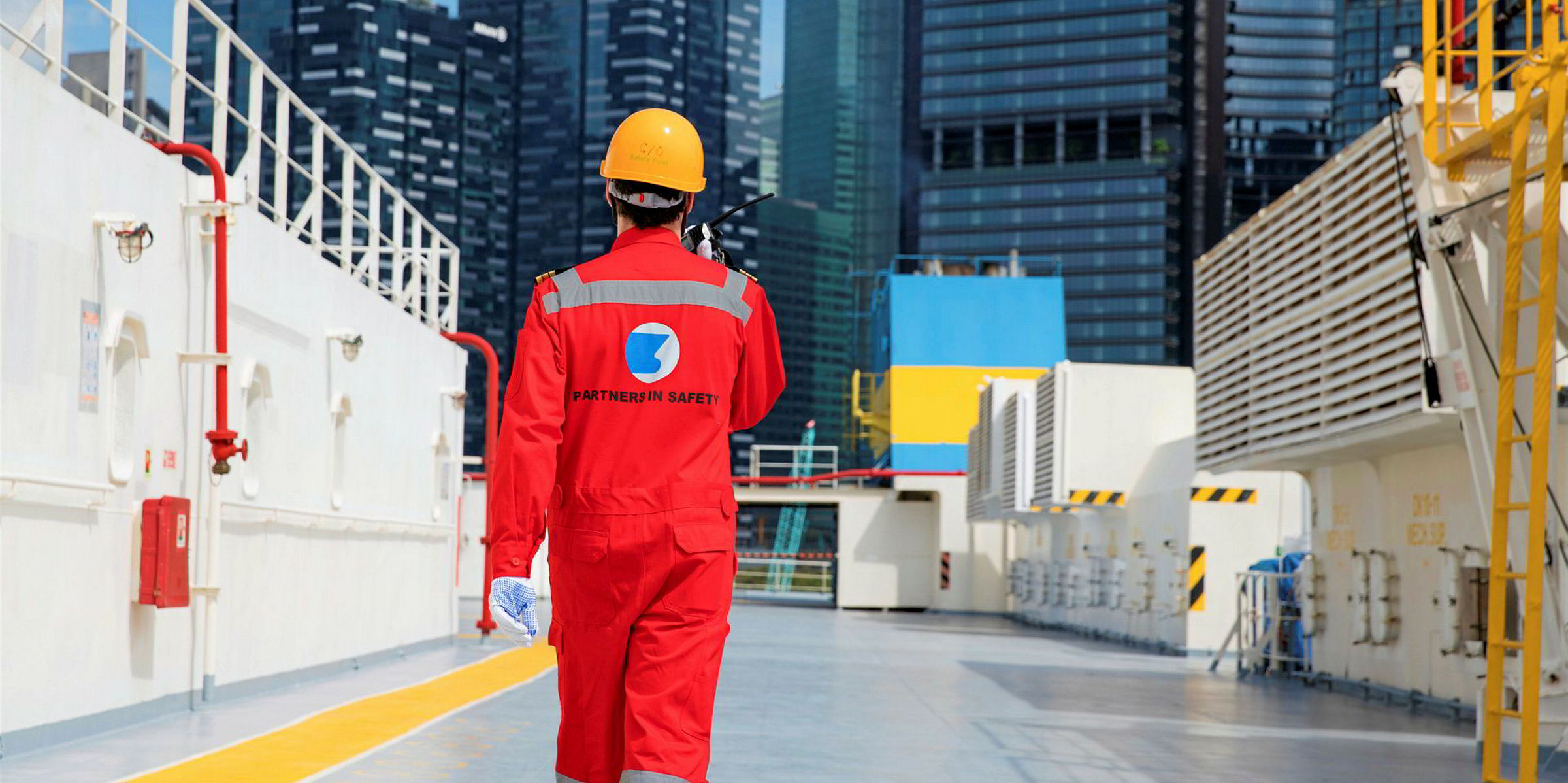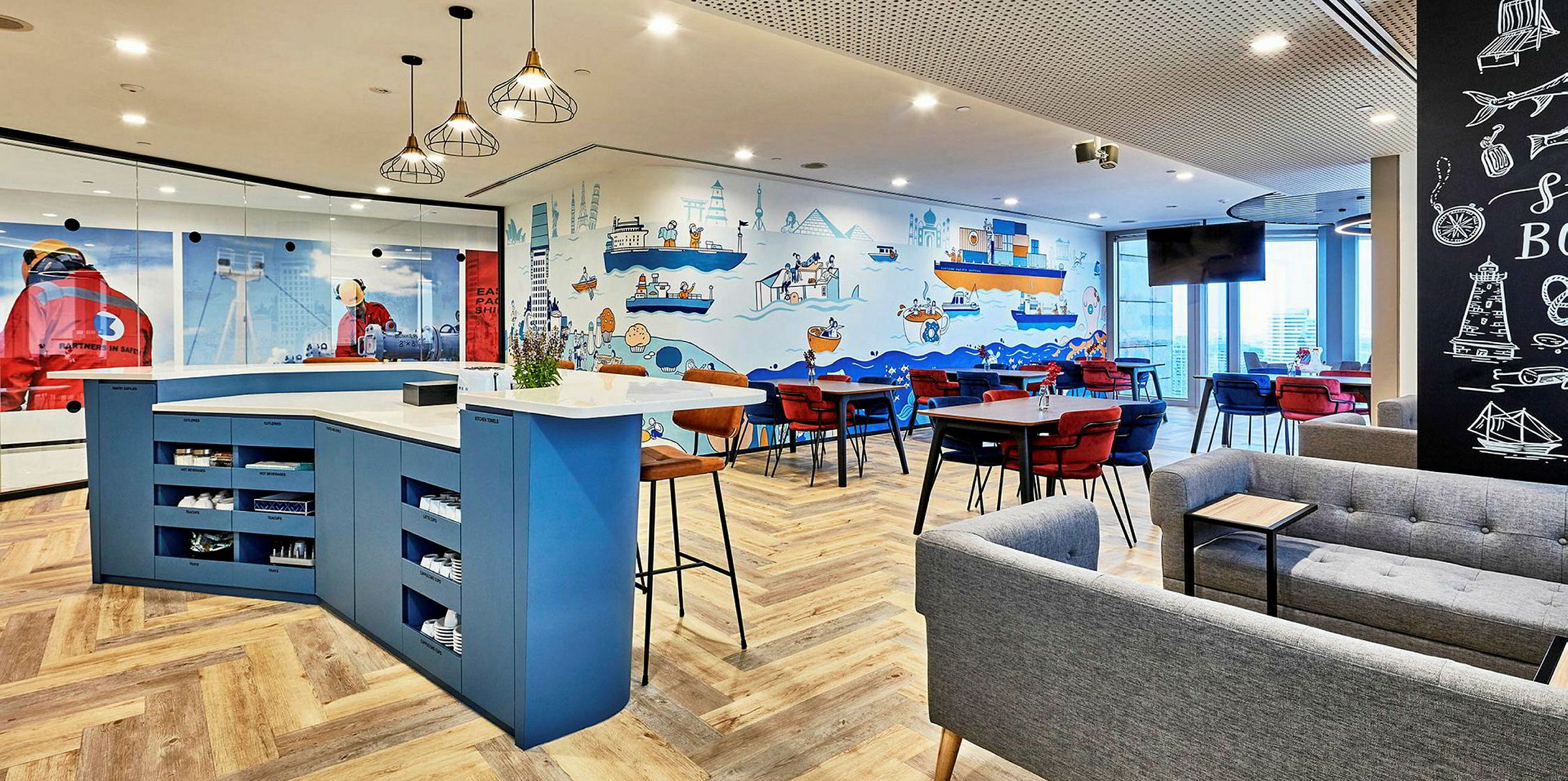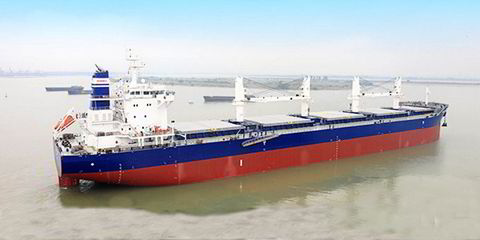A programme backed by Eastern Pacific Shipping (EPS) has given the notoriously conservative maritime industry a glimpse into how it can harness new technology.
Eastern Pacific MaritimeTech Accelerator Powered by Techstars (EPMAT) held an online demonstration day for the nine companies that took part in its effort to back technology development in shipping.
EPMAT was launched last May by Singapore-based Eastern Pacific and giant US seed accelerator Techstars to spur investment in maritime-related technology start-ups.
EPMAT gave the start-ups unprecedented access to the shipping industry by offering mentoring and opportunities to test and develop products in an onshore and on-board environment.
Its two main protagonists — Eastern Pacific’s head of open innovation, Gil Ofer, and Techstars’ managing director in Singapore, Dhritiman Hui — described the first round of the programme as a complete success.
Given the size of the shipping industry, “we feel that it is inevitable that multiple billion-dollar start-ups will emerge in the next decade, selling both software and hardware to the sector”, Hui said.
Ofer is especially pleased with the collaborative efforts between the chosen start-ups and the wider industry.
“I am proud to say that our inaugural cohort of start-ups met not only with most of our internal subject matter experts at EPS, but also 160 mentors from outside of EPS,” he said.
“Friends, competitors, suppliers, clients and more all helped the teams get to where they are today.”
'Huge success'
“It was a huge success in terms of their exposure to maritime professionals, both in offices onshore and at sea. For them, it was an eye-opening experience that was super beneficial. Our seafarers were excited to see that we were taking this opportunity very seriously and they loved being part of it.”
From an investor’s perspective, Hui added, it is vital to see start-ups get a lot of industry support.
“The programme could not have ticked that box better.”

At EPMAT’s launch, Ofer said he was keen on the development of sensors and software to optimise the management of vessels at sea.
“Why should we not be like other industries that have shown that it can be done in real time, like the aviation industry?” he asked.
Hui suggested that better interfaces between shipping companies and cargo owners, using software designed around what customers require, would be of great value, as would improvements to workflow processes onshore.
He is also interested in the potential of new designs and materials used for building ships.
Risk perspective
The nine selected start-ups not only covered these areas; they ran the full gamut of what Hui described as “a ship broken down into its parts, with different solutions found for each part”.
“What I liked was the spread,” he said, explaining that as an investor, spreading investments over a diverse range of start-ups works best from a risk perspective.
EPMAT’s nine participants have secured valuable contracts, while some have already locked in funding.
“Like any batch of companies in such a programme, some do better than others,” Ofer said.
EPMAT was never intended to be a one-off venture. Preparations are beginning for the second round. Ofer and Hui expect the selected candidates will be as diverse as those in the inaugural cohort.
“It will be more of the same, but I would like to see more focus on sustainability and sustainable shipping,” Ofer said.
Hui concurred: “The business case for sustainability will be incredibly powerful in the future.”
The global search for new participants will begin in May, with the selection process continuing until September. Those selected will begin their three-month programme in November.

The start-ups that took part in EPMAT 1
■ MC-Log — Digital maritime ID platform aimed at making the seafarer certification validation process easier and faster by leveraging blockchain technology.
■ CyberOwl — Cybersecurity system that provides real-time visibility and raises early warnings of suspicious activity on IT systems and assets, particularly at reconnaissance, installation or lateral movement stages of an attack.
■ Enermo Technology — Proprietary platform for condition monitoring and predictive maintenance that increases reliability of industrial equipment and optimises maintenance.
■ F-Drones — Larger, long-range drones that aim to transform marine and offshore logistics by carrying 100 kg payloads over 100 km.
■ Nautilus Labs — Building artificial intelligence to advance the efficiency of ocean commerce with technology to help shipping companies minimise fuel consumption, improve operational efficiency and optimise fleet performance.
■ QuantShip — Platform that forecasts freight rates two to three weeks in advance by identifying leading demand and supply indicators, using proprietary machine-learning algorithms, fixing freight and chartering vessels at the right time to maximise revenue by leveraging volatility and market inefficiencies.
■ Saara — Automated inventory and consumer-related processes for supply chain and retail businesses.
■ SeaMiles — A loyalty rewards programme designed to incentivise seafarers and shore personnel.
■ Volteo Maritime — Digitalising vessel operations management to reduce paperwork and provide real-time data at sea and onshore.






